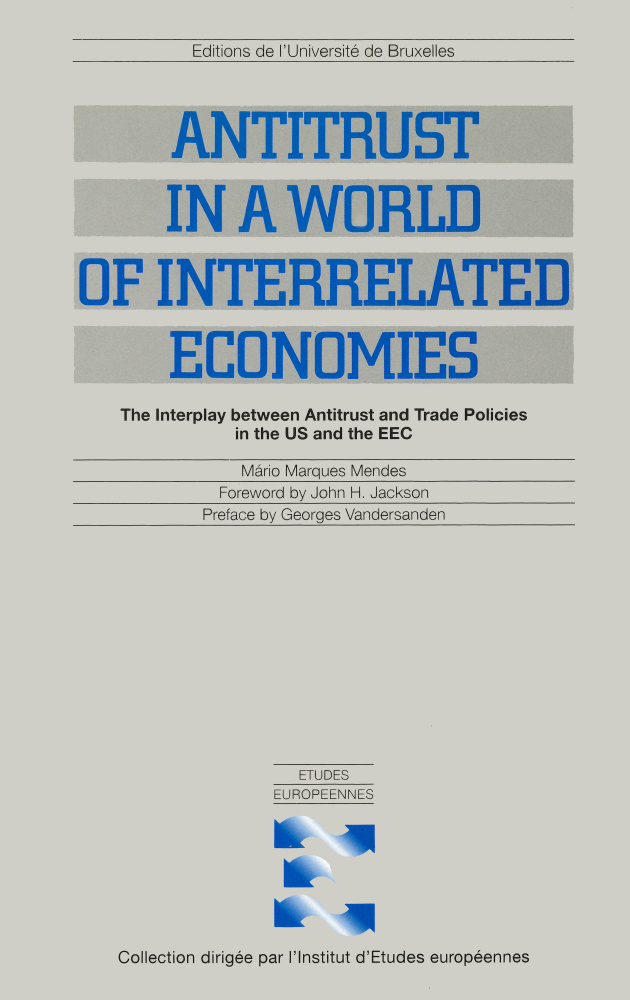Antitrust in a World of Interrelated Economies
The Interplay between Antitrust and Trade Policies in the US and the EEC
First Edition
The purpose of this work is to analyse the role of antitrust in international trade and, in this light, compare antitrust policy and trade policy. Read More
In a world of interdependent economies, the relationship between antitrust and trade policies seems not only evident, but also inevitable. However, while both have an impact on international trade, they may serve different purposes. Trade policy is inherently protectionistic; antitrust, on the contrary, aims at promoting competition in both domestic and foreign trade.
Whereas world trade has been the object of extensive regulation under GATT (General Agreement on Tariffs and Trade) and related treaties, there is not so far an international agreement on competition matters imposing binding rules in respect of private restraints of trade.
As Professor John Jackson (University of Michigan Law School, USA) points out in his foreword to the book "(s)ome say that the lack of a set of international competition rules is the largest gap in the world trading system today, and one which will have to be remedied before too long, even though it is not being addressed in the current Uruguay round negotiation". In the meantime, the problem is being dealt with through the controversial « extraterritorial » application of domestic antitrust laws.
The crosscurrents between antitrust and trade policies in the US and the EEC, undertaken in Part III of the book, is therefore preceded, in Part I, by the study of the most salient aspects of international regulation in the areas of trade and antitrust and, in Part II, by a comparative analysis of US and EEC antitrust laws and policies.
In Professor Jackson's words "this book by Mr. Mendes proves to be both timely and significant. The extensive learning and documentation which he brings to the subject will be very useful to scholars, lawyers and government officials".
Specifications
- Publisher
- Éditions de l'Université de Bruxelles
- Author
- Mário Marques Mendes,
- Foreword by
- John Howard Jackson,
- Preface by
- Georges Vandersanden,
- Collection
- European Studies | n° 3
- ISSN
- 13780352
- Language
- English
- Publisher Category
- Publishers own classification > Law
- BISAC Subject Heading
- LAW005000 LAW / Antitrust
- Onix Audience Codes
- 06 Professional and scholarly
- CLIL (Version 2013-2019)
- 3274 Droit de la concurrence
- Subject Scheme Identifier Code
- Thema subject category: Competition law / Antitrust law
Paperback
- Publication Date
- 22 February 1991
- ISBN-13
- 978-2-8004-1019-7
- Extent
- Main content page count : 288
- Code
- 1019
- Dimensions
- 160 x 240 x 23 cm
- Weight
- 515 grams
- ONIX XML
- Version 2.1, Version 3

